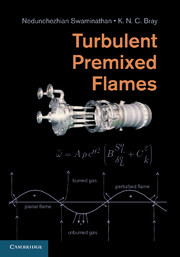1 - Fundamentals and Challenges
Published online by Cambridge University Press: 01 June 2011
Summary
Aims and Coverage
Currently the energy required for domestic and industrial use and for transportation is predominantly met by burning fossil fuels. Although alternative sources are evolving, for example, by harvesting wind and solar energies, energy production by means of combustion is expected to remain dominant for many decades to come, especially for high-power density applications. Thus pollutant emission regulations for power-producing devices are set with the aim of reducing the impact of combustion on the environment, both by curtailing pollutant emissions and by increasing the efficiency of combustion equipment. Conventional combustion technologies are unable to achieve these two demands simultaneously but fuel-lean combustion, in which the fuel–air mixture contains a controlled excess of air, has the potential to fulfil both requirements.
The aim of this book is to bring together a review of the physics of lean combustion and its current modelling practices, together with a description of scientific challenges to be faced and ways to achieve stable lean combustion in practical devices. Additional material on non-reacting turbulent flows may be found in [1–5], and basic theories of combustion and turbulent reacting flows and their governing equations are presented in [6–9].
The present chapter sets the scene for the remainder of this volume.
- Type
- Chapter
- Information
- Turbulent Premixed Flames , pp. 1 - 40Publisher: Cambridge University PressPrint publication year: 2011
- 12
- Cited by

